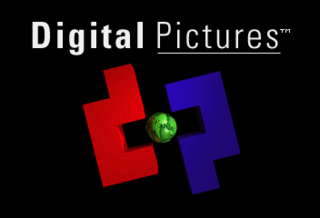Difference between revisions of "Digital Pictures"
From Sega Retro
m (Text replacement - ", USA" to ", United States") |
|||
| Line 18: | Line 18: | ||
==Softography== | ==Softography== | ||
| − | + | {{CompanyHistoryAll|Digital Pictures}} | |
| − | {{ | ||
| − | |||
| − | |||
| − | |||
| − | |||
| − | |||
| − | |||
| − | |||
| − | |||
| − | |||
| − | |||
| − | |||
| − | |||
| − | |||
| − | |||
| − | |||
| − | |||
| − | === | + | ==References== |
| − | + | <references /> | |
| − | |||
| − | |||
| − | |||
| − | |||
| − | |||
| − | |||
| − | |||
| − | |||
| − | |||
| − | |||
Revision as of 17:19, 20 January 2020

| ||
| Digital Pictures | ||
|---|---|---|
| Founded: 1991 | ||
| T-series code: T-162 | ||
Headquarters:
|
Digital Pictures was a North American video game company founded in 1991 by Ken Melville and Tom Zito. They made most of their income developing and publishing games that made use of full motion video (FMV) technology, starting with Night Trap, a game originally designed for the cancelled NEMO system by Hasbro, later ported to the Sega Mega-CD. Night Trap is widely credited as being the first game completely reliant on full motion video.
They almost single handedly carried the Sega Mega-CD 32X hybrid platform, being involved with four out of the six games to be released on Mega CD 32X discs.
Digital Pictures as a company failed along with the genre it invented. Towards the end of the 1990s consumer interest in FMV games dropped, and Digital Pictures struggled to sell their games as a result.
Certain Mega CD games by Digital Pictures contain a short redbook audio CD track of a phone ringing with a male voice answering "Good afternoon, Digital Pictures", followed by a backwards playback of several voices saying "number nine" ("enin rebmun"), a reference to The Beatles song Revolution 9. The message is a hint for Sewer Shark - if the player turns left (referred to as "niner" in the game) three times the player will not hit a wall.
Contents
Softography
Mega-CD
- Night Trap (1992)
- Sewer Shark (1992)
- Kris Kross (1992)
- INXS (1993)
- Power Factory Featuring C+C Music Factory (1993)
- The Colors of Modern Rock (1993)
- Marky Mark and the Funky Bunch (1993)
- Ground Zero Texas (1993)
- Double Switch (1993)
- Prize Fighter (1993)
- Kids on Site (1994)
- Supreme Warrior (1994)
- Corpse Killer (1994)
- Slam City with Scottie Pippen (1994)
- Slam City with Scottie Pippen (1995)
- Bug Blasters: The Exterminators (unreleased)
- Citizen X (unreleased)
- March of Time (unreleased)
- Prince and the N.P.G.: Diamonds and Pearls (unreleased)
Saturn
- Corpse Killer (1995)
- Quarterback Attack with Mike Ditka (1995)
- Double Switch (1995)
- Maximum Surge (unreleased)
- Prize Fighter: Heavyweight Edition (unreleased)